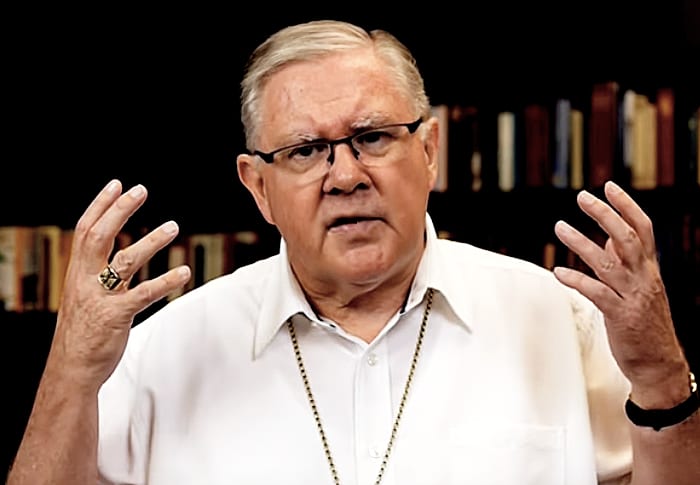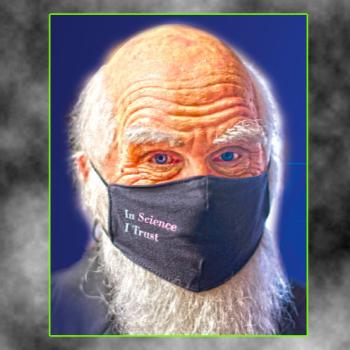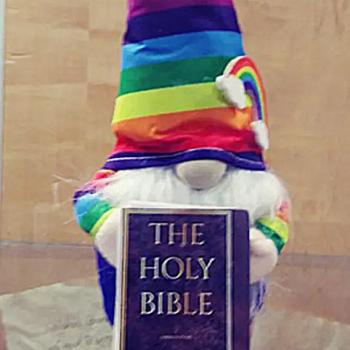
AT THE beginning of the year, Brisbane’s Catholic Archbishop Mark Coleridge, above, railed against proposed new laws that would would force members of the clergy to report known or suspected cases of abuse to police. Failure to do so could mean a three-year jail sentence.
In a formal submission, Coleridge said while the church was “unequivocally committed to the protection of children,” breaking the confessional seal:
Would not make a difference to the safety of young people. The proposed legislation would make the priest at this vital point less a servant of God than an agent of the state.
Clergy have died because they have refused to submit to the claims of the state and preferred to defend the rights of the penitent before God and the rights of God before the penitent.
Well, Coleridge’s submission got kicked into the long grass, and today it’s reported that the legislation has been passed. This means religious institutions and their members are no longer able to use the sanctity of confessional as a defence or excuse in child sex abuse matters.
Police Minister Mark Ryan said the laws would ensure better protection for vulnerable children.
The requirement and quite frankly the moral obligation to report concerning behaviours towards children applies to everyone everyone in this community. No one group or occupation is being singled out. Child protection is everyone’s responsibility.
The laws apply to information received from now, even if it relates to abuse that occurred in the past.
But One Nation MP Stephen Andrew, right, said it set a dangerous precedent for religious leaders.
The bill poses a real danger for public trust and cohesion in our community. Many priests and bishops have publicly stated that they will go to jail before obeying these laws.
How confident can the people of Queensland be that they live in a free and open democracy governed by the rule of law, where the state jails its bishops?
Hetty Johnston from the child protection group Bravehearts expressed her support for the new laws.
I don’t think there is enough jail time in the world that would replace a child’s innocence … what sort of punishment is suitable for someone who would allow that to happen?
The laws enact recommendations of the Royal Commission into Institutional Responses to Child Sexual Abuse. They also coincide with Queensland Child Protection week.
Coleridge’s January submission also said:
It is claimed at times that the seal must be abolished in law because it is the linchpin of a culture of secrecy and cover-up. The Church rejects such a claim, insisting that the seal is the guarantee of a culture of true disclosure which is the opposite of cover-up.
The Royal Commission into Institutional Responses to Child Sexual Abuse recommended the change to secrecy rules, leading to Queensland’s drafting of the proposed Child Sexual Offences Reform Bill.
Coleridge said breaking the seal had practical limits, as most confessions were anonymous. Furthermore, a perpetrator or victim might be less likely to raise abuse in confession if confidence in the sacramental seal was undermined.
The seal recognises the right of the sinful human being to approach God in complete freedom. It enables the penitent to speak openly before God … to hide nothing from the God who sees all and forgives all.
The Archbishop’s submission was in contrast to the Anglican church, which stated:
The General Synod of the Anglican Church has passed legislation which, in effect, allows clergy to comply with mandatory reporting laws relating to child sexual abuse or avoid committing a failure to report offence without breaching Church laws regarding confession.
In the submission, signed off by Anglican Church Southern Queensland (ACSQ) General Manager Tim Reid, the church went on to state:
There is no impediment in Anglican Church law in force in this diocese to any licensed member of the clergy in ACSQ being able to report information about a child sex offence gained during a confession.
The Queensland’s Human Rights Commission also made a submission, which argued religion should not be above the law.
The Commission is of the view that non-exemption of religious confession, while limiting the right to freedom of religion, is ‘demonstrably justified’…

 I’d love a cup of coffee
I’d love a cup of coffee








